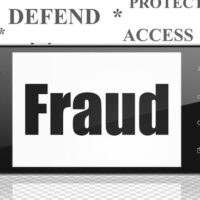Federal Mail And Wire Fraud Charges

The federal mail and wire fraud statutes are among the most commonly used tools in federal prosecutions of white-collar crimes in the United States of America. This might be because, in this day and age, nearly all frauds are alleged to have involved some means of communication that does not require people to meet in person (non-face-to-face communication). In the U.S., the government uses Title 18, United States Code, Section 1341 to prosecute people suspected of committing mail fraud. On the other hand, the government uses Title 18, United States Code, Section 1343 to prosecute people suspected of committing wire fraud.
Simply put, mail fraud involves the use of the United States Postal Service or another interstate commercial carrier such as UPS or FedEx. In contrast, wire fraud involves the use of electronic communications. Usually, mail and wire fraud offenses are charged together with other financial crimes such as health care fraud, bank fraud, computer fraud, among others.
Understanding More About Federal Mail Fraud
In addition to a scheme or artifice to defraud combined with an intention to defraud, mail fraud requires proof that a person used the United States Postal Service or another interstate commercial carrier to commit a fraudulent act. A person uses the U.S. Postal Service or another interstate commercial carrier to commit fraud when they place an item, communication, or other matter in the U.S. Mail or otherwise send one privately using an interstate commercial carrier such as FedEx or UPS.
According to Title 18 U.S. Code, Section 1341, anyone found guilty of mail fraud shall be fined or jailed for not more than 20 years, or both. However, some factors can lead to a person facing even more harsh penalties. For example, if a violation affects a financial institution, such an individual could be fined up to $1,000,000 and imprisoned for up to 30 years.
Understanding More About Federal Wire Fraud
Just as is with mail fraud, wire fraud involves a scheme or artifice to defraud. However, unlike mail fraud, which involves the use of mail, wire fraud involves the use of wire, radio, or television communication. According to Title 18 U.S. Code, Section 1343, it is a crime for anyone to transmit by means of wire, radio, or television communication any signals, writings, sounds, or pictures for purposes of executing a scheme or artifice.
According to Title 18 U.S. Code, Section 1343, anybody found guilty of wire fraud shall be fined or jailed for up to 20 years, or both. Just as is with mail fraud, some factors can lead to a person facing even more harsh penalties when it comes to wire fraud. For instance, if a violation occurs in relation to or involves, a benefit authorized, transmitted, transported, disbursed, or paid in connection with, a presidentially declared major emergency or disaster, such an individual could be fined up to $1,000,000 and imprisoned for up to 30 years.
Please note that both mail and wire fraud involve the use of false or fraudulent;
- representations;
- pretenses; or
- promises
Contact a Skilled NYC Mail and Wire Fraud Attorney Today
There are different defense strategies an attorney can use to defend you against mail or wire fraud charges. Dedicated NYC fraud defense attorney, Mark I. Cohen, can help you determine the best defense strategy to employ in your case. Contact us today at 917-414-8585 to schedule a consultation.
